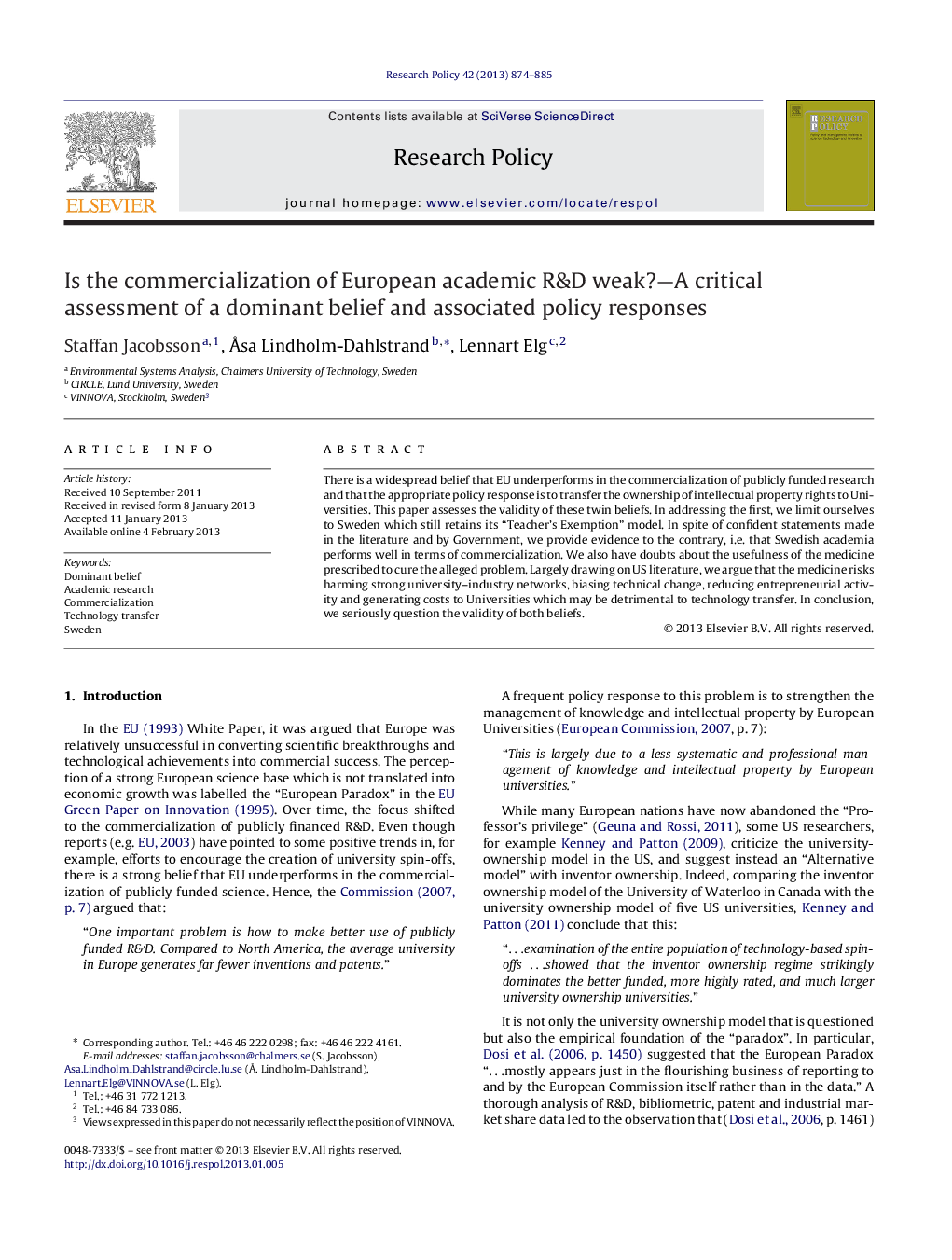| Article ID | Journal | Published Year | Pages | File Type |
|---|---|---|---|---|
| 985086 | Research Policy | 2013 | 12 Pages |
There is a widespread belief that EU underperforms in the commercialization of publicly funded research and that the appropriate policy response is to transfer the ownership of intellectual property rights to Universities. This paper assesses the validity of these twin beliefs. In addressing the first, we limit ourselves to Sweden which still retains its “Teacher's Exemption” model. In spite of confident statements made in the literature and by Government, we provide evidence to the contrary, i.e. that Swedish academia performs well in terms of commercialization. We also have doubts about the usefulness of the medicine prescribed to cure the alleged problem. Largely drawing on US literature, we argue that the medicine risks harming strong university–industry networks, biasing technical change, reducing entrepreneurial activity and generating costs to Universities which may be detrimental to technology transfer. In conclusion, we seriously question the validity of both beliefs.
► We assess the validity of the belief in a poor commercialisation of European academic R&D. ► Empirical data is based on the Swedish case. ► We outline the emergence of the belief, and scrutinize the empirical foundation that upholds the belief. ► A critical analysis of the usefulness of copying US science policy solutions in Europe is undertaken.
